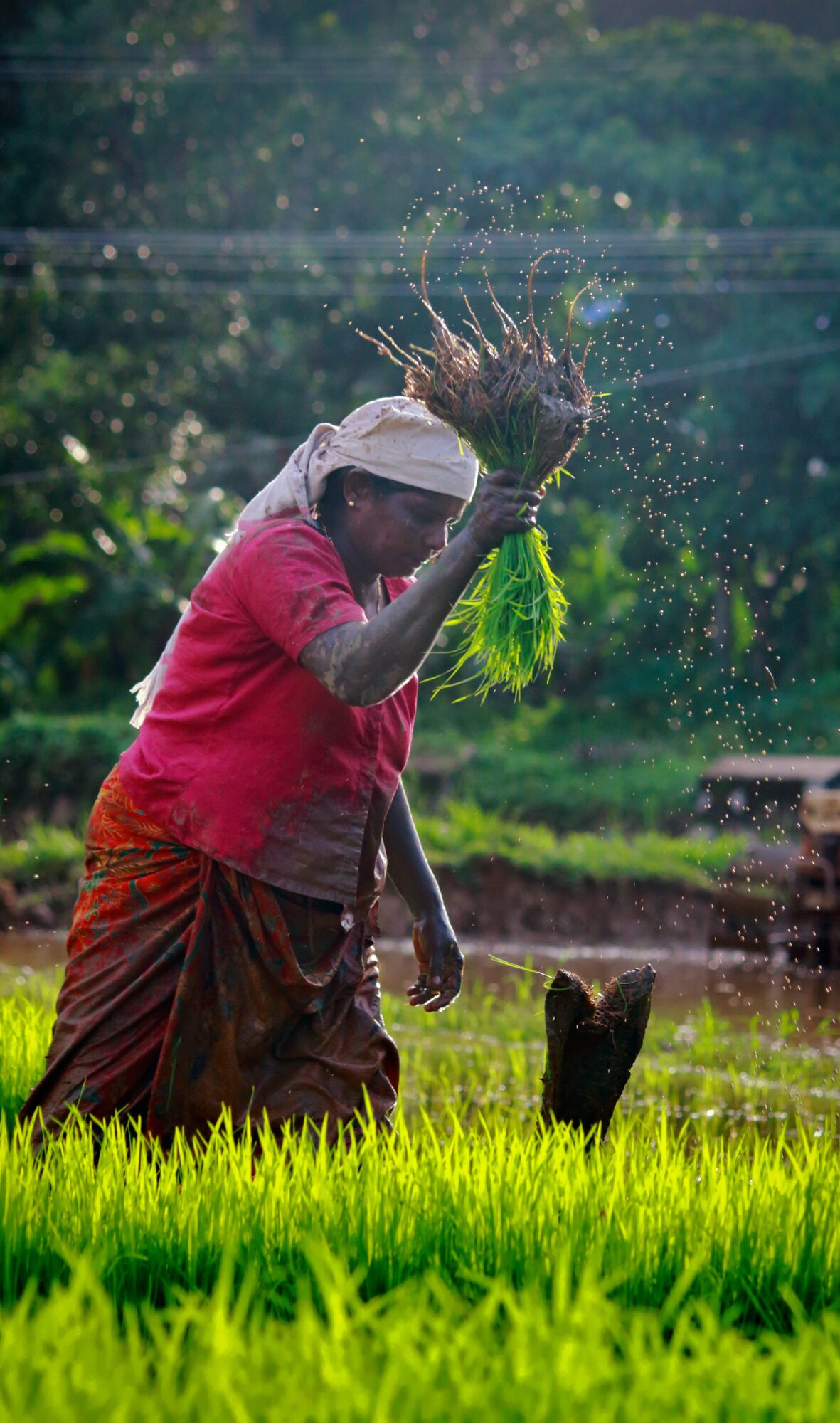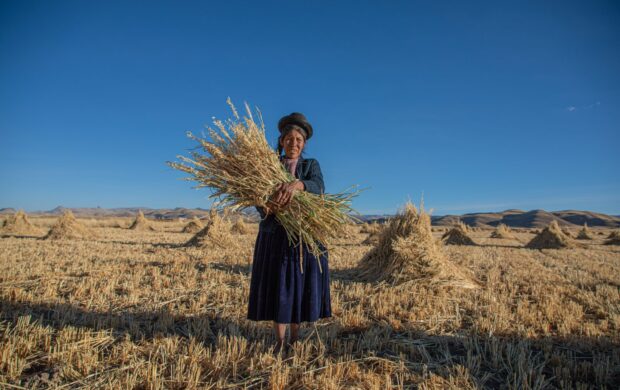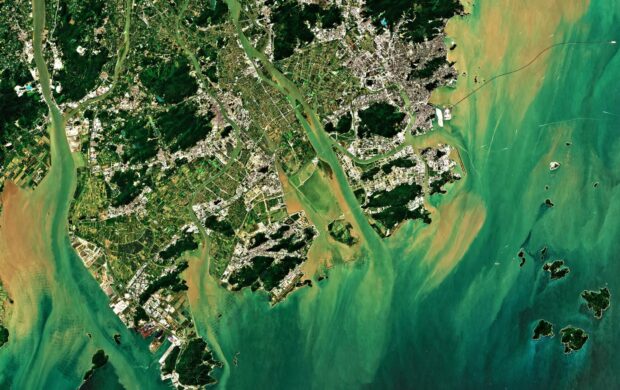Addressing Climate and Health in an integrated manner offers a significant opportunity to counter injustice and inequality argues Forum for the Future’s Cole Dittmar
The COVID-19 pandemic and climate breakdown are two defining and interlinked crises. The pandemic intensified existing inequalities and amplified the risk of inaction in our climate and health systems. A healthy planet is a foundation for a healthy population and human health cannot be advanced without fresh water, healthy food, clean air and a stable climate. The World Health Organisation (WHO) estimates that at least 13 million deaths per year are attributable to unavoidable impacts of climate change. Urgent and systemic action is essential to simultaneously developing resilient health systems and addressing the climate crisis. Policymakers, investors and the private sector all have an active role to play in enabling this deep transformation which is so critical for creating a just and regenerative future.
Emerging work towards a systemic approach to Climate and Health
Forum for the Future’s ’Driving Co-benefits for Climate and Health’ report, published in 2021 with Bupa, GSK Consumer Healthcare and Walgreen Boots Alliance, lays out the opportunity for action:
“The world’s governments and many of its leading businesses have pledged to tackle climate change.… but, it’s clear that most are doing too little, too late…. Reframing climate change as the health emergency it really is, could spur the much more rapid action that is needed.”
’Driving Co-benefits for Climate and Health‘ Forum for the Future
The possibility of a fairer, healthier and more resilient world is underpinning emergent action.
The nexus of climate and health is one of the primary avenues to understanding the importance of equity and justice, so identifying areas for action for the private sector and policymakers is essential to ensuring a future that works for everyone.
Promisingly, there is significant energy behind pushing this conversation forward, but we must be careful to avoid shallow transitions or piecemeal solutions where we address some specific problems and their symptoms in isolation, but fail to tackle the root causes.

The case for change has been made. The WHO pioneered systemic work on climate and health and made several recommendations for states and policy with the 2008 Libreville Declaration. This work has been continued over the last 14 years, culminating in this year’s World Health Day campaign Our Planet, Our Health. Meanwhile Forum for the Future’s 2021 report highlights the case for action, as well guidance, for the private sector. Narratives outlining clear action areas to integrate the two systems and joined next steps for governments, communities, philanthropy, the private sector and investors need to be amplified going forward.
Focusing on the recommendations from the WHO and Forum for the Future, we can imagine an outline of actions needed to achieve the goal of deep transformations:
- Policy and Justice: An alliance across states and the relevant policymakers is essential for addressing how these issues transcend borders. Effective strategies are systemic and center justice to tackle the disproportionate detrimental health outcomes concentrated in underdeveloped geographies.
- Civil Society: It is vital to strengthen ties between civil society groups and the private sector. Building the capacity of community led healthcare in underdeveloped and remote geographies relieves systemic stress and addresses long standing debates around agency.
- Private Sector: The private sector and governments can look to align their strategies to push toward deep transformation. Businesses will benefit by looking inwards: improving employee health and wellbeing drives productivity and profitability. This includes making improvements across the supply chain to build resilience and create healthier and safer working environments for traditionally marginalised stakeholders in the value chain.
Mindset shifts are a key lever to driving systemic change. Recognising the unfair distribution of climate and health impacts on some of the more marginalized stakeholders across the world is vital. Our mindsets need to be more emotionally intelligent; local communities’ needs must be central, with a keen understanding of local economies, geographies and cultures informing design. Solutions should be designed with vulnerable stakeholders’ interests at heart.
How do we recentre perspectives towards communities that are and have been historically placed at the margins of the system?
Smallholder farmers’ experiences help us examine the despairing conditions of marginalised stakeholders. A One Health article outlines four factors engendered by climate change that threaten smallholder farmers’ health and livelihoods.

- Increased risk of communicable diseases through extreme weather events: The human impact is significant, as these disease outbreaks result “in population displacement and can inhibit healthcare access.” Diseased crops negatively impact crop yield, threatening livelihoods and food security.
- Increase in non-communicable diseases for smallholder farmers, largely resulting from changing weather patterns. Diseases include “cardiovascular disease, cancers, respiratory issues, and malnutrition.” Extreme weather events like cyclones threaten crop yields resulting in food insecurity and associated malnutrition.
- Heat waves also contribute to occupational health issues. “In 2017, 153 billion hours of labour were lost globally owing to heat exposure, 80% of which occurred in the agricultural sector, and labour losses are likely to increase.” Considering that “smallholder farms provide 70% of kilocalories to the people of Asia and sub-Saharan Africa” makes the threat to not only smallholder farmers, but also to the world’s ability to meet their most basic and essential needs, clear.
Cyclone Idai, that hit Mozambique, Malawi and Zimbabwe in 2019, offers a shocking example. UN Secretary-General António Guterres described it as “one of the worst weather-related catastrophes in the history of Africa.” It resulted in landslides and floods,with over a 1000 estimated deaths and an economic loss estimated at US$ 2.2 billion. This extreme weather event threatened the livelihoods and lives of people without access to the necessary level of infrastructure and healthcare. It increased diseases and ruined crop yield with the devastation on a human level seeming almost unimaginable, but unfortunately very real. - The cumulative impact of threats to agricultural livelihoods also impact mental health as farmers grapple with the trauma of extreme weather events and the gradual effects of climate change. Threats to income, crop yields, housing, and infrastructure are accompanied by a significant increase in post-disaster mental health conditions such as PTSD, depression and generalised anxiety disorder(GAD). One study estimates that climate change was a contributing factor to the suicides of 60,000 smallholder farmers in India over the last 30 years.
Throughout 2021, Indian farmers successfully protested legislation to loosen regulations providing farmers with a fair price for produce. The central government hoped to address an ailing agricultural sector by opening up free-market competition. Many saw this as a step toward ending the Minimum Support Price, a price guarantee mechanism that many farmers have come to depend on for income security, particularly as the climate changes and yields become more volatile. The protestors surrounded Delhi, “with dozens dying from heat, cold and Covid”.
Although the success of the protests provides a powerful illustration of marginalized communities asserting agency through collective action, the human cost of these protests was tragically avoidable. System change interventions should focus on identifying and responding to the needs of communities, remedying existing inequities, and empowering relationships amongst stakeholders such as smallholder farmers, landowners, and governments Only by taking a holistic approach can we create a just and equitable future and ensure no-one is left behind. Improving climate adaptation and resilience through collaboration between communities and governments, more participatory governance, and increased access to newer technology are some initial steps.
Realising the opportunity for deep transformation in Climate and Health
Fostering preventive mindsets in healthcare and appreciating local knowledge will encourage deep transformation. As Forum for the Future’s report on resilient health systems produced in partnership with Johnson and Johnson’s Center for Health Worker Innovation, expands, “the public’s understanding of what it means to be healthy is shifting away from focusing on treating illness and is expanding to include enabling a state of overall wellness, and attending to not only physical but also mental, social, and spiritual needs.”
If health equity is prioritised, we can avoid significant injustice in climate action: disadvantaged communities feel the health impacts of the climate crisis on a far greater scale. Addressing these issues is essential to protecting the lives of the marginalised and vulnerable. The challenges are complex, yet the opportunity is huge. Deep transformation is possible if key actors act collaboratively and with urgency; if our mindsets shift and we centre communities and equity in all our efforts.
Join our event at Climate Week NYC on 21st September, to explore our latest guidance for corporate action with a particular focus on the healthcare, food, tech and infrastructure sectors.
Register for the event
Sources:
- BBC Farm laws: India farmers end protest after government accepts demands
- ‘Crop damaging temperatures increase suicide rates in India’ TA Carleton PNAS
- Forum for the Future: ‘Driving Co-benefits for Climate and Health’
- Forum for the Future: ‘Resilient Health Systems of the Future: the Case for Community Health’
- Forum for the Future: 2021: deep transformation or shallow change?
- ‘Health impacts of climate change on smallholder farmes’ Talukder et al. One Health.
- Lancet Countdown: Tracking progress on health and climate change: The 2021 Report
- UNGC Business Leadership Brief (2019)
- UN Global Compact: ‘Business Leadership Brief for a Healthy Planet’
- WHO Global Health Matters Podcast: Climate change’s impact on health.
- WHO: Libreville Declaration 2008
Want regular insights and glimpses of the future straight to your inbox?






















Join discussion